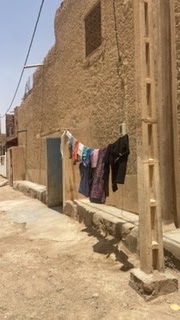Blog 3: Power and Gender

Power and how it is used is an important idea in leadership. Power, the capacity of an individual to change people’s “beliefs, attitudes, and courses of action” (Northouse, 2021, p. 10). Nations, society, and community are assessed based on power distance, the degree to which people without authority in organizations see power is distributed (Hofstede Insights, 2022). High power societies accept inequality in power distribution whereas people in low power societies question authority and expect to be involved in decisions that impact them (Hofstede Insights, 2020). Morocco is categorized as a high-power society (Hofstede Insights, 2020). One of the areas that I pay attention to when thinking of power is who makes decisions between men and women. Even in low power societies, you find that decisions are predominantly made by males, many decision-making positions in government and business are held by men. My view is that the one making the decisions, or at least the one with recognized a...




